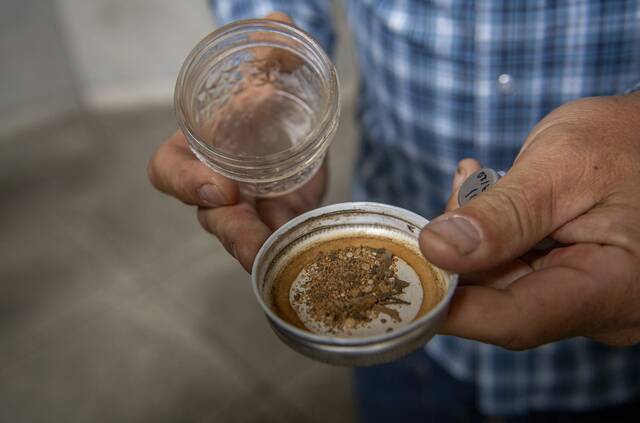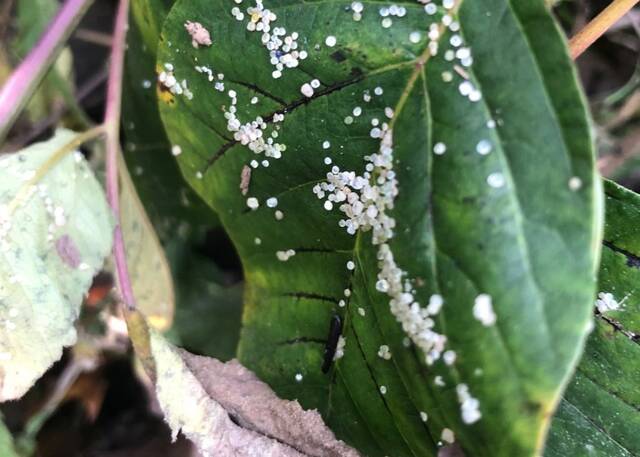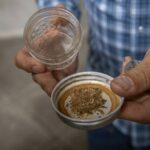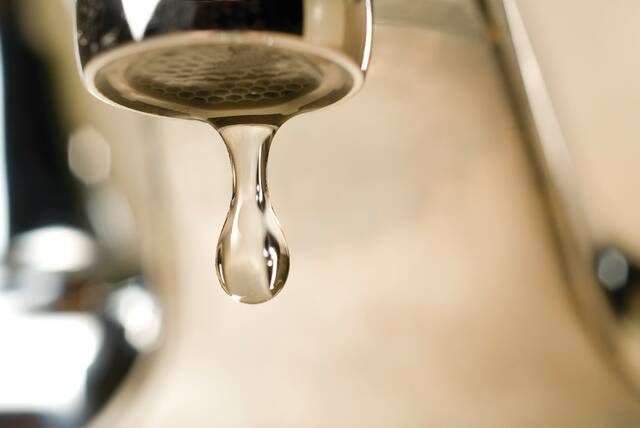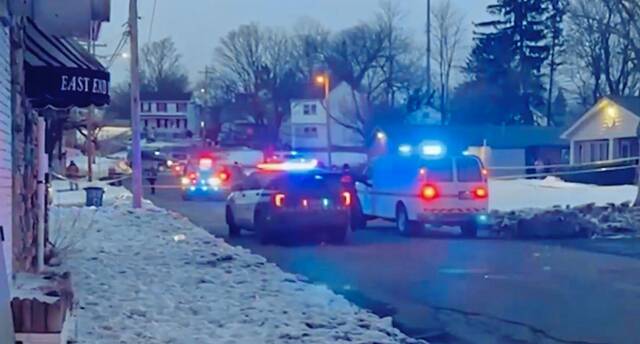A Beaver County plastics manufacturer has agreed to pay $2.6 million to settle a federal lawsuit filed by PennEnvironment and Three Rivers Waterkeeper over the discharge of microplastics in wastewater and stormwater in the Ohio River Basin.
The proposed settlement with Styropek USA, which was announced Thursday, must be approved by a federal judge.
Styropek, operating as BVPV Styrenics LLC, idled its Monaca plant in May. Before that, it produced as much as 123,000 tons each year of expandable polystyrene pellets, known as nurdles, PennEnvironment said.
Under the settlement terms, the company must pay an automatic penalty whenever a single one of the tiny pellets is detected.
Nurdles are small, rigid spheres up to 2.5 mm in diameter that can be expanded and then used in plastic foam products, like coffee cups, coolers and packing materials.
Environmental groups said the agreement will help set a precedent.
“One of the reasons why this is a landmark settlement is the fact that the plastic manufacturer and environmental regulators acknowledge that the technology exists to monitor and capture wayward pollution from plastic down to the single pellet,” said PennEnvironment Executive Director David Masur.
“The framework of today’s settlement should be copied by citizen groups and environmental regulators here in Pennsylvania and across the nation as the standard for achieving zero plastic discharges into our waterways and our environment.”
A message left with Styropek’s attorney was not immediately returned.
Styropek is set on 400 acres at the confluence of Raccoon Creek and the Ohio River, which provides drinking water to 5 million people in the area, PennEnvironment said.
“There is no doubt that pellets like those discharged by Styropek pose a major threat to public health and the environment,” Masur said. “This landmark victory will protect the headwaters of the Ohio River Basin and the people who rely on it for clean water, including those near Styropek’s Beaver County facility.”
Even though the plant is idle, nurdles that are on the property continue to get washed into the watershed from rain water, said Matthew Donohue, a lawyer with the nonprofit National Environmental Law Center, which filed the suit.
‘Nurdle patrols’
The two environmental groups sued Styropek USA in December 2023 alleging the company was discharging the pellets into the water and along banks around Raccoon Creek and the Ohio River, violating the federal Clean Water Act and Pennsylvania’s Clean Streams Law.
When released into the water supply, the organization said, the pellets act as “toxic sponges,” and can enter the food chain through animals.
The complaint was filed after monthly “nurdle patrols,” conducted by Three Rivers Waterkeeper and Mountain Watershed Association found the pellets on vegetation, creek banks and in river sediment. They had been discharged through an underwater pipe in Raccoon Creek, the lawsuit said.
The organizations took their information to the Pennsylvania Department of Environmental Protection, but when the agency took no action, said Three Rivers Waterkeeper’s Evan Clark, they decided to file a lawsuit instead.
In addition to the financial settlement, Styropek must install cutting-edge monitoring technology at every stormwater outfall to track when micropellets escape the property.
The monitoring system also collects the nurdles, said Donohue.
For every nurdle discharge, Styropek must pay a fine.
In the first year, Donohue said, that fine is $1,500 per instance – or $750 if fewer than 10 nurdles are found. After that, the penalties rise to $3,500 per instance, $1,750 for fewer than 10 nurdles, he said.
Styropek will be responsible for monitoring and self-reporting violations. The company has three years, Donohue said, to figure out an engineering plan that would stop contamination from both wastewater and stormwater.
The technology, Donohue said, is exciting, and they are hopeful that other manufacturers will see it work and adopt it, as well.
Similar settlements
There have been two other similar settlements in the United States over nurdle pollution.
Formosa Plastics in Texas agreed in 2019 to pay $50 million in a federal Clean Water Act lawsuit led by the San Antonio Bay Estuarine Waterkeeper.
In Charleston, S.C., Frontier Logistics agreed in March 2021 to pay $1.2 million to settle a lawsuit filed by Charleston Waterkeeper and the Coastal Conservation League.
“This can be a new standard,” Donohue said. “If you get two or three, it becomes common practice.”
Heather Hulton VanTassel, the executive director of Three Rivers Waterkeeper, said plastic manufacturing facilities use trillions of nurdles each year, which can be impossible to remove.
“The widespread installation of these technologies is the next step to preventing future plastic pollution and protecting our source drinking water,” she said.
Hulton VanTassel said that recent research has shown that the average person has about a credit-card size amount of plastics inside their body.
“So when we’re thinking about these plastics in our waterways, they’re not benign,” she said.
They also have a negative impact on aquatic life, which consume nurdles because they look like eggs.
“So they consume them, and they get lodged in their system,” Hulton VanTassel said.
They can cause mortality and long-term morbidity.
They also can impact the density and composition of vegetation and change ecosystems, she said.
DEP’s involvement
According to the settlement agreement, out of the $2.6 million, $2 million will be set aside to remediate pellets in the immediate vicinity of the Styropek facility.
The rest will go toward improving the Raccoon Creek and Ohio River watershed.
The money will be managed by the Foundation for Pennsylvania Watersheds.
Last month, the Pennsylvania Department of Environmental Protection filed a motion to intervene in the case, seeking to become a signatory of the proposed agreement, along with the parties.
DEP said it is the agency responsible for administering Pennsylvania’s Clean Streams Law and permitting for pollutant discharge.
U.S. District Judge J. Nicholas Ranjan granted the motion.



